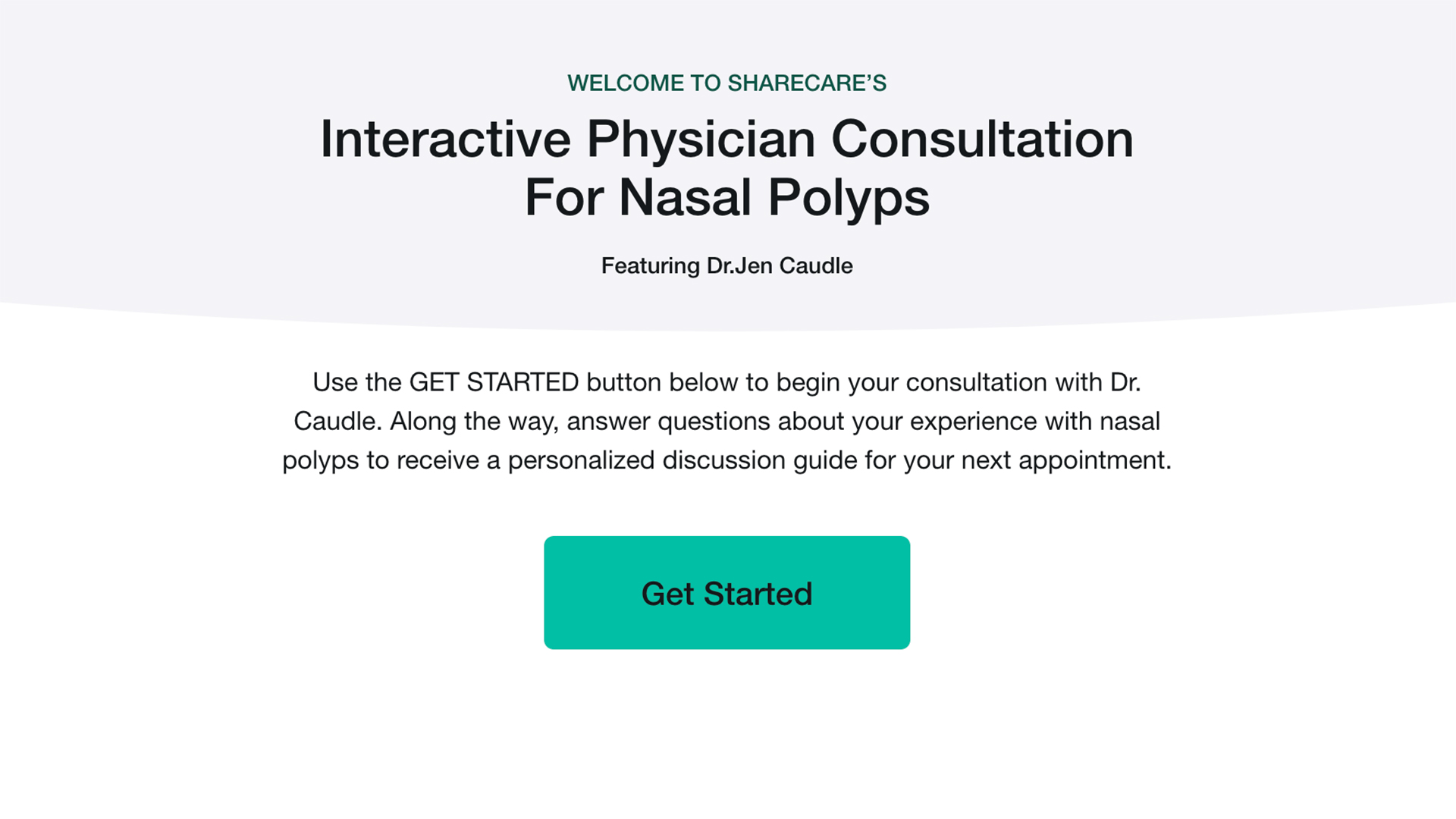Nasal polyps are benign growths that form in the nasal cavity and sinuses. Shaped like teardrops, they vary in size and may form on their own or in clusters. Small polyps may not cause any symptoms. Larger polyps or clusters of polyps can make breathing difficult, blocking airways and contributing to congestion, sinus infections, loss of smell, and other symptoms.
Nasal polyps are typically associated with other conditions. These include chronic rhinosinusitis, aspirin-exacerbated respiratory disease (AERD), allergy or sensitivity to nonsteroidal anti-inflammatory drugs (NSAIDs), allergic rhinitis, and asthma.
Below are some answers to common questions about nasal polyps, including symptoms, diagnosis, and treatment options.
What are the symptoms of nasal polyps?
Small nasal polyps may not cause any symptoms and may go unnoticed or undiagnosed. Larger nasal polyps or clusters of nasal polyps can block the sinuses and cause symptoms. Symptoms can include:
- Sneezing, runny nose, or postnasal drip
- Headaches, facial pain or pressure
- Recurring colds or sinus infections
- Difficulty breathing
- Reduced sense of smell and taste
- Snoring
- Trouble sleeping
Are nasal polyps cancerous?
Nasal polyps are benign tumors—abnormal growths of tissue that are not cancerous. This means they do not invade nearby tissues or spread to other areas of the body. However, not all abnormal growths in the nose are nasal polyps, which is why it is important to see a healthcare provider to have nasal polyps examined and diagnosed.
How are nasal polyps diagnosed?
In addition to a physical exam and medical history, your healthcare provider may use a nasal endoscope—a small camera attached to a thin, flexible tube—to examine your nasal passages. In some cases, healthcare providers may order a CT scan (a type of imaging test) to determine the exact location and size of the polyps.
Your healthcare provider may also order blood tests to look for low levels of vitamin D and tests to check for allergies that may be causing inflammation.
How are nasal polyps treated?
If you have nasal polyps, you will need to work with your healthcare provider to address any conditions that could contribute to the formation of nasal polyps. How the nasal polyps are treated can depend on their location and size. Treatment may include:
- The first step in treatment is typically a nasal corticosteroid that can hopefully shrink the polyps and also keep them from growing. Nasal corticosteroids can be administered as a nasal spray.
- In some cases, a short course of oral steroids may be used, as well as an antibiotic if you have a sinus infection.
- There is also a biologic drug that is prescribed to treat some cases of chronic rhinitis with nasal polyps. This drug is given by injection and acts on specific pathways in the immune system to reduce inflammation.
- Some patients may need surgery to remove polyps.
Can nasal polyps be prevented?
Prevention is also important. You should take steps to avoid irritants or allergens that can make nasal symptoms worse, and wash your hands regularly to prevent bacterial or viral infections. Your healthcare provider may discuss making changes to your home, such as using a humidifier, which helps some people with respiratory conditions breathe easier.
Your healthcare provider may also recommend using a saline rinse to help flush irritants out of your nasal cavity and sinuses. When using any type of nasal wash device, it is important that you always use sterile water and follow the device’s instructions for sterilizing before and after use—using non-sterile water can increase the risk of infection.




